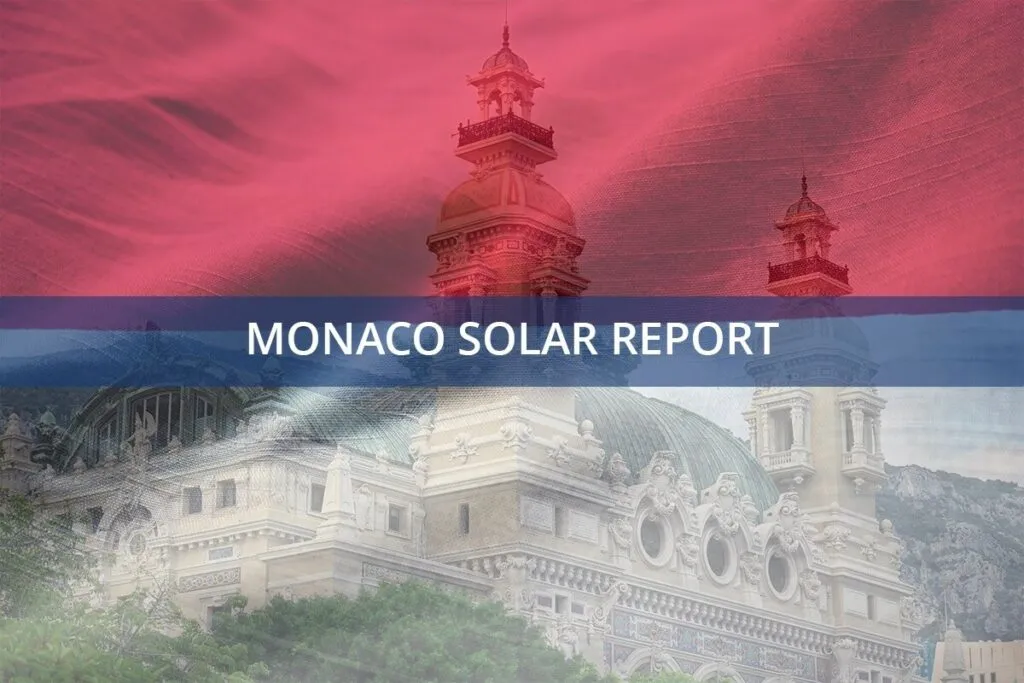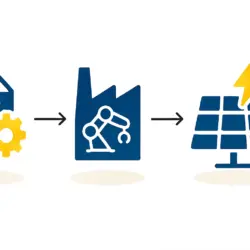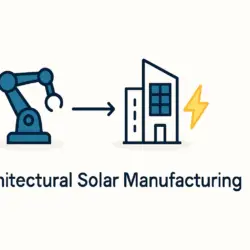The EU’s solar industry is at a critical juncture. While long-term growth is forecast, the immediate future looks challenging. The sector is facing its first employment contraction in nearly a decade, with an expected loss of around 40,000 jobs in 2025. This comes amid broader warnings from industry bodies like SolarPower Europe that a failure to increase domestic production of solar panels could put up to 200,000 jobs at risk in the long run.
A Perfect Storm: The Impact of EU solar job losses
The report from SolarPower Europe highlights a stark reality: the EU’s solar sector is heavily dependent on China, which manufactured approximately 75% of the world’s solar panels in 2023. This over-reliance creates significant vulnerability.
More recent analysis points to an immediate downturn. The projected loss of 40,000 jobs, or 5% of the solar workforce, in 2025 is primarily driven by a slowdown in market growth, especially in the job-intensive residential rooftop segment. After several years of rapid expansion, the market is contracting due to a combination of factors: insufficient policy frameworks, global production overcapacity leading to intense price pressure, and broader energy sector trends creating financial instability. This situation underscores the immense challenge European manufacturers face when trying to compete.
This dominance poses a significant risk to the EU’s solar sector, as it could lead to job losses if the EU does not take steps to strengthen its domestic production capabilities. Understanding the intricate solar panel manufacturing process is the first step in identifying where Europe can strategically rebuild its industrial base.
To combat this reliance on Chinese imports, the EU is exploring ways to boost domestic production. One of the proposed measures is leveraging the EU’s ‘Carbon Border Adjustment Mechanism’ (CBAM). This mechanism is designed to level the playing field for domestic producers by imposing tariffs on imports from countries with lower environmental standards.
EU’s Efforts to Combat Solar Production and EU solar job losses
The EU is considering a range of measures to support its solar industry, such as providing subsidies and tax incentives to encourage investment in domestic solar panel manufacturing. These efforts are part of a broader strategy to reduce the EU’s reliance on imports and ensure the long-term sustainability of its solar sector. For example, understanding the role of Germany renewable subsidies provides insight into how individual member states are tackling this challenge.
Across the bloc, nations are initiating programs to foster domestic capacity. The Croatia Solar Panel Manufacturing | Market Insights Report shows how targeted government programs can support the installation of new renewable energy capacity. To be effective, these strategies must address the entire value chain, from securing solar panel raw materials to investing in modern solar panel manufacturing machines.
Despite the 2025 dip, the medium-term outlook is not entirely bleak. Projections suggest the sector could recover employment from 2026 onwards, potentially exceeding 916,000 jobs by 2029. This recovery hinges on the success of these EU-wide support policies. Achieving the EU’s ambitious target of 45% renewable energy by 2030 will require a significant increase in solar capacity, which is unsustainable without a strong domestic manufacturing base.
The High Stakes of a Resilient European Solar Sector and EU solar job losses
The solar industry is a key component of the EU’s green transition, and its success is crucial for achieving the bloc’s climate goals. Beyond job creation, a robust solar sector contributes to economic growth and reduces the EU’s dependence on fossil fuels. However, the industry faces significant challenges in competing with China’s established and heavily subsidized manufacturing base. A clear understanding of the solar panel manufacturing plant cost breakdown reveals the scale of investment required to build a competitive European industry.
Looking ahead, some markets show significant promise. The Denmark Solar Panel Manufacturing Report suggests the country could emerge as a highly attractive solar market from 2025, highlighting the potential rewards if the EU’s strategy is successful.
The EU’s efforts to boost domestic solar production are crucial for ensuring the long-term sustainability of the industry and achieving the bloc’s climate goals. By reducing its reliance on imports, the EU can create stable jobs, drive economic growth, and secure its energy independence. The coming year will be a critical test of the EU’s resolve to turn its industrial ambitions into reality.
Navigating these complex challenges requires deep industry knowledge. To better understand the intricacies of solar manufacturing and the future of the industry, consider exploring our free e-course on solar panel manufacturing.



